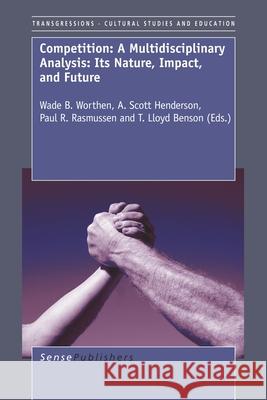Competition : A Multidisciplinary Analysis » książka
Competition : A Multidisciplinary Analysis
ISBN-13: 9789087908263 / Angielski / Miękka / 2009 / 212 str.
Experts examine competition from their own disciplinary perspectives. From economics to philosophy, biology to education, and psychology to politics, the origins and applications of this paradigm are placed in historical context, its mechanics are analyzed, and its costs and benefits are assessed.
The Super Bowl. Democrats vs. Republicans. Ford vs. Chevy. Bloods vs. Crips. Public vs. private schools. Sibling rivalries. Competition permeates every aspect of our society, and we place great confidence in its ability to allocate resources efficiently, spur innovation, and build personal character. As others have argued, competition is now a paradigm-a conceptual framework that is often taken for granted but rarely challenged. In this book, experts examine competition from their own disciplinary perspectives. From economics to philosophy, biology to education, and psychology to politics, the origins and applications of this paradigm are placed in historical context, its mechanics are analyzed, and its costs and benefits are assessed. The questions addressed in this book are important and varied. What is the historical genesis of the competition paradigm? How is competition manifest in our culture-in religion, politics, economics, sports, business, and education-and are its effects always beneficial? What can we learn about the mechanics of competition from studying nature? Are humans naturally competitive, or is it a learned behavior? How does competition affect our mental and physical well-being? Is competition the best strategy for allocating finite planetary resources to an expanding human population? The book also engages a cooperative alternative, and asks: Is there an ethical tension between competition and cooperation? Why have cooperative models been undervalued and marginalized? Can cooperation increase innovation and efficiency? This collection provides a broad, insightful, and productive examination of one of the dominant concepts of our time.











